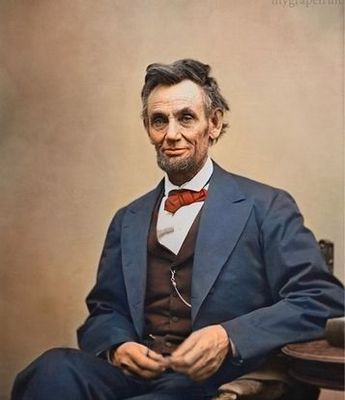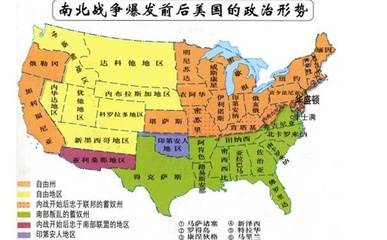
Abraham Lincoln (February 12, 1809 – April 15, 1865) served asthe 16th President of the United States from March 1861 until hisassassination in April 1865. He successfully led his countrythrough its greatest internal crisis, the American Civil War,preserving the Union and ending slavery. Before his election in1860 as the first Republican president, Lincoln had been a countrylawyer, an Illinois state legislator, a member of the United StatesHouse of Representatives, and twice an unsuccessful candidate forelection to the U.S. Senate. As an outspoken opponent of theexpansion of slavery in the United States, Lincoln won theRepublican Party nomination in 1860 and was elected president laterthat year. His tenure in office was occupied primarily with thedefeat of the secessionist Confederate States of America in theAmerican Civil War. He introduced measures that resulted in theabolition of slavery, issuing his Emancipation Proclamation in 1863and promoting the passage of the Thirteenth Amendment to theConstitution. Six days after the large-scale surrender ofConfederate forces under General Robert E. Lee, Lincoln became thefirst American president to be assassinated.
Lincoln had closely supervised the victorious war effort,especially the selection of top generals, including Ulysses S.Grant. Historians have concluded that he handled the factions ofthe Republican Party well, bringing leaders of each faction intohis cabinet and forcing them to cooperate. Lincoln successfullydefused the Trent affair, a war scare with Britain late in 1861.Under his leadership, the Union took control of the border slavestates at the start of the war. Additionally, he managed his ownreelection in the 1864 presidential election.
Copperheads and other opponents of the war criticized Lincolnfor refusing to compromise on the slavery issue. Conversely, theRadical Republicans, an abolitionist faction of the RepublicanParty, criticized him for moving too slowly in abolishing slavery.Even with these opponents, Lincoln successfully rallied publicopinion through his rhetoric and speeches; his Gettysburg Address(1863) became an iconic symbol of the nation's duty. At the closeof the war, Lincoln held a moderate view of Reconstruction, seekingto speedily reunite the nation through a policy of generousreconciliation. Lincoln has consistently been ranked by scholars asone of the greatest of all U.S. Presidents.
Early political career and military service
Lincoln began his political career in March 1832 at age 23 when heannounced his candidacy for the Illinois General Assembly. He wasesteemed by the residents of New Salem, but he didn't have aneducation, powerful friends, or money. The centerpiece of hisplatform was the undertaking of navigational improvements on theSangamon River. Bef ore the election he served as a captain in acompany of the Illinois militia during the Black Hawk War, althoughhe never saw combat. Lincoln returned from the militia after a fewmonths and was able to campaign throughout the county before theAugust 6 election. At 6 feet 4 inches (1.93 m), he was tall and"strong enough to intimidate any rival." At his first politicalspeech, he grabbed a man accosting a supporter by his "neck and theseat of his trousers", and threw him. When the votes were counted,Lincoln finished eighth out of thirteen candidates (only the topfour were elected), but he did manage to secure 277 out of the 300votes cast in the New Salem precinct.
 爱华网
爱华网



